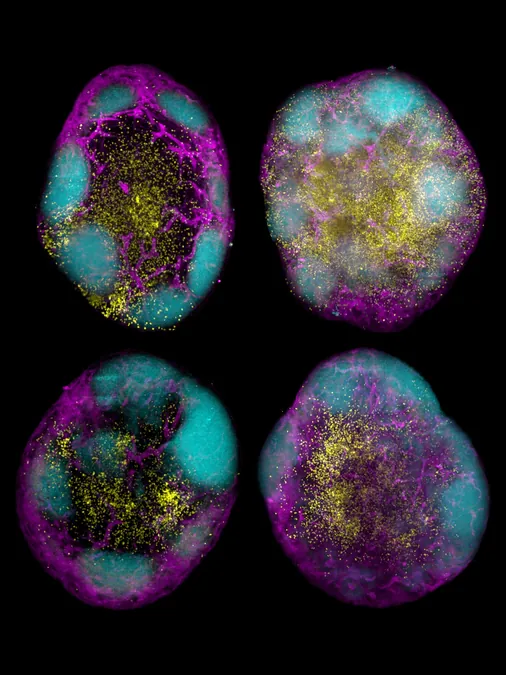
Revolutionizing Vaccines: The Next Leap in Immune Protection
2025-05-07
Author: Arjun
Scientists at WEHI are breaking new ground in vaccine research, revealing an innovative method that could significantly boost vaccine effectiveness by unlocking the power of a unique immune cell. This groundbreaking discovery not only promises long-lasting protection against viruses but also paves the way for enhanced cancer treatments.
Unlocking Immune Resilience with T Cells
By leveraging advanced mRNA vaccine technology, the WEHI team has identified a way to enhance memory CD8+ T cells, which are known for their remarkable ability to self-renew and remember past infections. This research, published in the Journal of Experimental Medicine, suggests a future where many diseases can be effectively prevented or treated with far fewer vaccine boosters required.
A New Era of Vaccination: Goodbye to Frequent Boosters?
Vaccines are hailed as one of the greatest medical achievements, saving millions of lives annually. However, traditional vaccines often depend on antibodies for protection, which diminish over time, leading to the need for booster shots—an approach seen with vaccines for COVID-19 and tetanus. Antibodies target virus surfaces, and since these surfaces can change, especially in fast-evolving viruses like influenza, regular updates to vaccines are crucial.
Lead researcher Associate Professor Joanna Groom highlighted the potential of stem cell-like memory CD8+ T cells in overcoming these challenges: 'We've long believed that these cells are key to long-lasting immunity, and this study provides the first solid evidence of their benefits.'
Memory Cells: Nature's Long-Term Guardians
Similar to elephants, these stem cell-like T cells possess an impressive memory, allowing them to quickly respond to previously encountered threats. By employing a technique known as immunomodulation, the team optimized immune responses at the cellular level, effectively generating these robust cells in mice.
The adaptable nature of mRNA vaccines makes them exceptionally promising, as they can be swiftly developed to counter newly emerging viral threats, indicating a bright future for vaccine innovation.
Excitement Over Groundbreaking Findings
'The results are astonishing—we were thrilled at how effectively our strategy enhanced these cells,' said Associate Professor Groom. With the potential to drastically reduce the frequency of booster shots while ensuring enduring immunity, this research sets the stage for a major breakthrough in vaccine development.
Beyond Viruses: The Cancer Vaccine Frontier
But the implications of this research extend beyond infectious diseases. Increased levels of these memory T cells are linked with better cancer treatment outcomes. Ph.D. student Benjamin Broomfield, the study's lead author, pointed out that these findings could ignite new advancements in cancer immunotherapy, offering hope for more effective treatment options.





 Brasil (PT)
Brasil (PT)
 Canada (EN)
Canada (EN)
 Chile (ES)
Chile (ES)
 Česko (CS)
Česko (CS)
 대한민국 (KO)
대한민국 (KO)
 España (ES)
España (ES)
 France (FR)
France (FR)
 Hong Kong (EN)
Hong Kong (EN)
 Italia (IT)
Italia (IT)
 日本 (JA)
日本 (JA)
 Magyarország (HU)
Magyarország (HU)
 Norge (NO)
Norge (NO)
 Polska (PL)
Polska (PL)
 Schweiz (DE)
Schweiz (DE)
 Singapore (EN)
Singapore (EN)
 Sverige (SV)
Sverige (SV)
 Suomi (FI)
Suomi (FI)
 Türkiye (TR)
Türkiye (TR)
 الإمارات العربية المتحدة (AR)
الإمارات العربية المتحدة (AR)